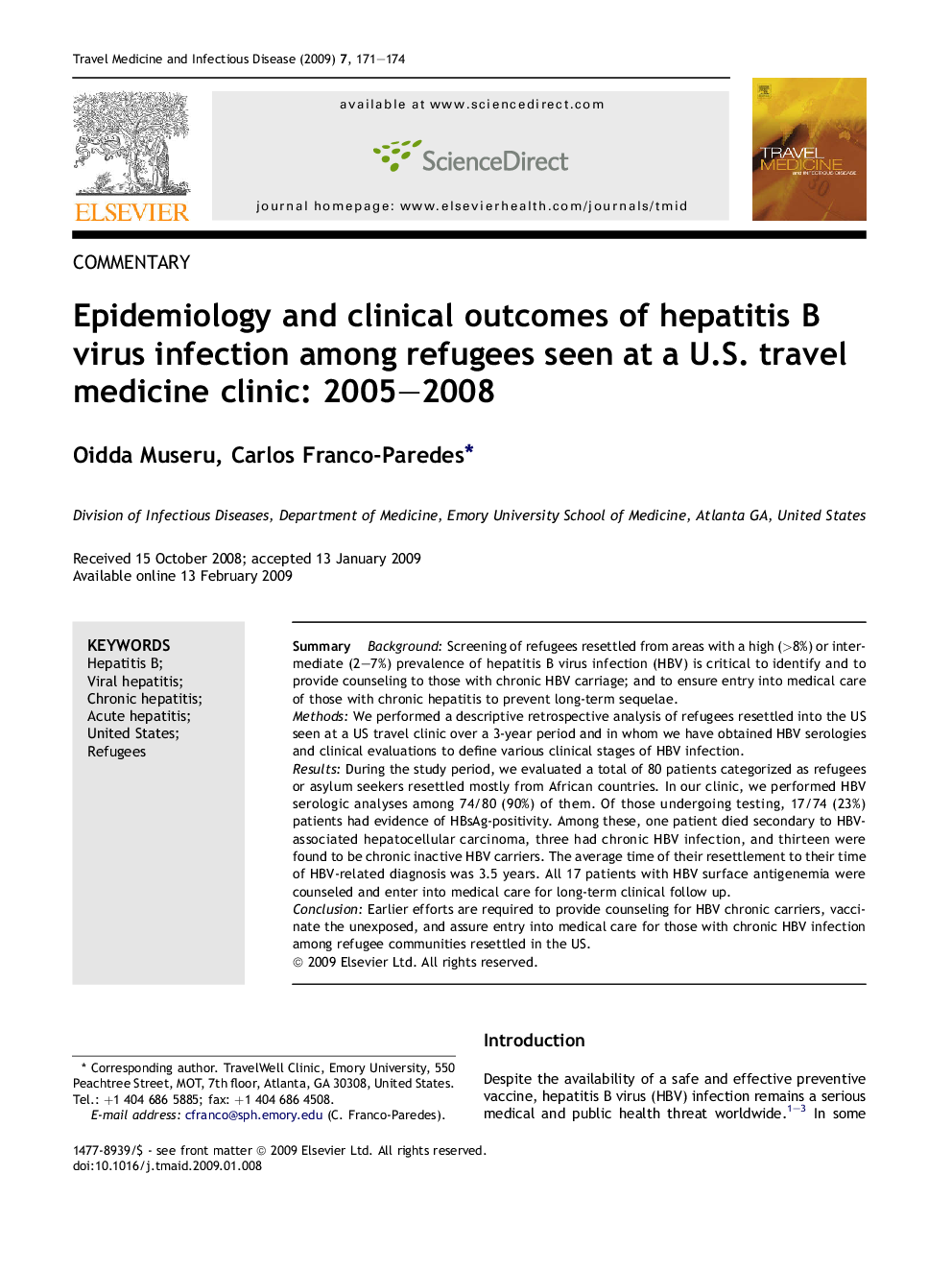| Article ID | Journal | Published Year | Pages | File Type |
|---|---|---|---|---|
| 3393211 | Travel Medicine and Infectious Disease | 2009 | 4 Pages |
SummaryBackgroundScreening of refugees resettled from areas with a high (>8%) or intermediate (2–7%) prevalence of hepatitis B virus infection (HBV) is critical to identify and to provide counseling to those with chronic HBV carriage; and to ensure entry into medical care of those with chronic hepatitis to prevent long-term sequelae.MethodsWe performed a descriptive retrospective analysis of refugees resettled into the US seen at a US travel clinic over a 3-year period and in whom we have obtained HBV serologies and clinical evaluations to define various clinical stages of HBV infection.ResultsDuring the study period, we evaluated a total of 80 patients categorized as refugees or asylum seekers resettled mostly from African countries. In our clinic, we performed HBV serologic analyses among 74/80 (90%) of them. Of those undergoing testing, 17/74 (23%) patients had evidence of HBsAg-positivity. Among these, one patient died secondary to HBV-associated hepatocellular carcinoma, three had chronic HBV infection, and thirteen were found to be chronic inactive HBV carriers. The average time of their resettlement to their time of HBV-related diagnosis was 3.5 years. All 17 patients with HBV surface antigenemia were counseled and enter into medical care for long-term clinical follow up.ConclusionEarlier efforts are required to provide counseling for HBV chronic carriers, vaccinate the unexposed, and assure entry into medical care for those with chronic HBV infection among refugee communities resettled in the US.
